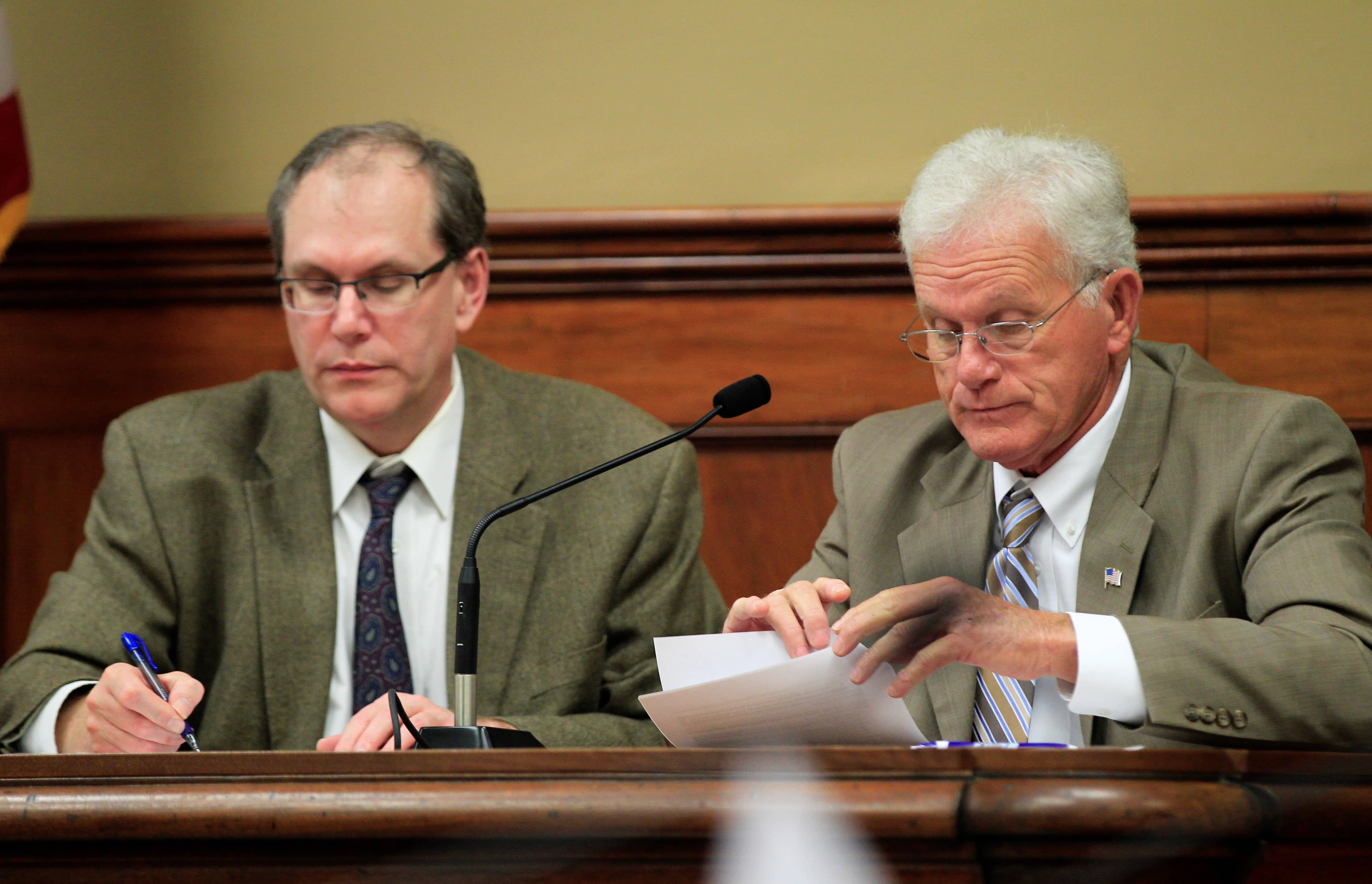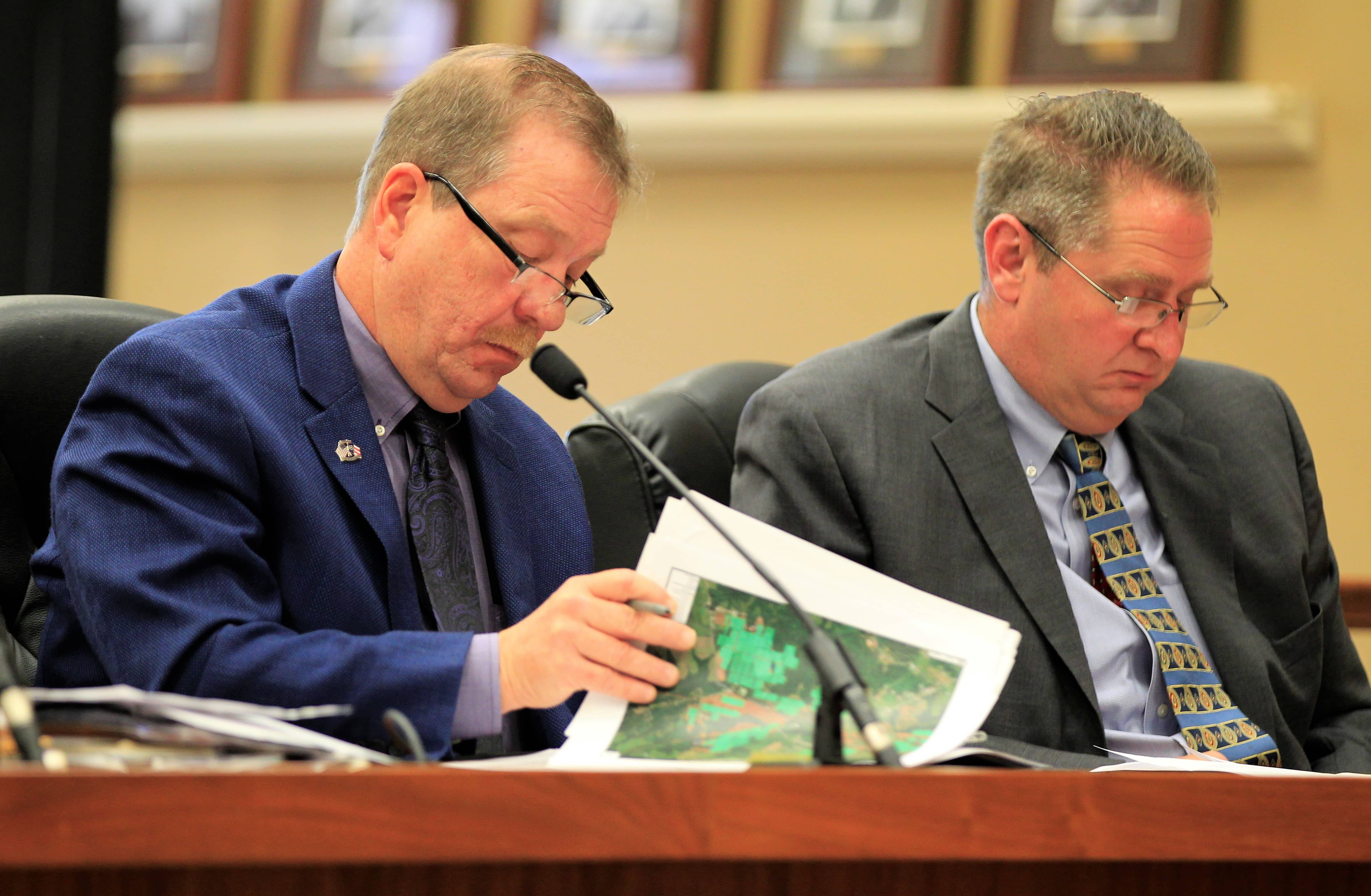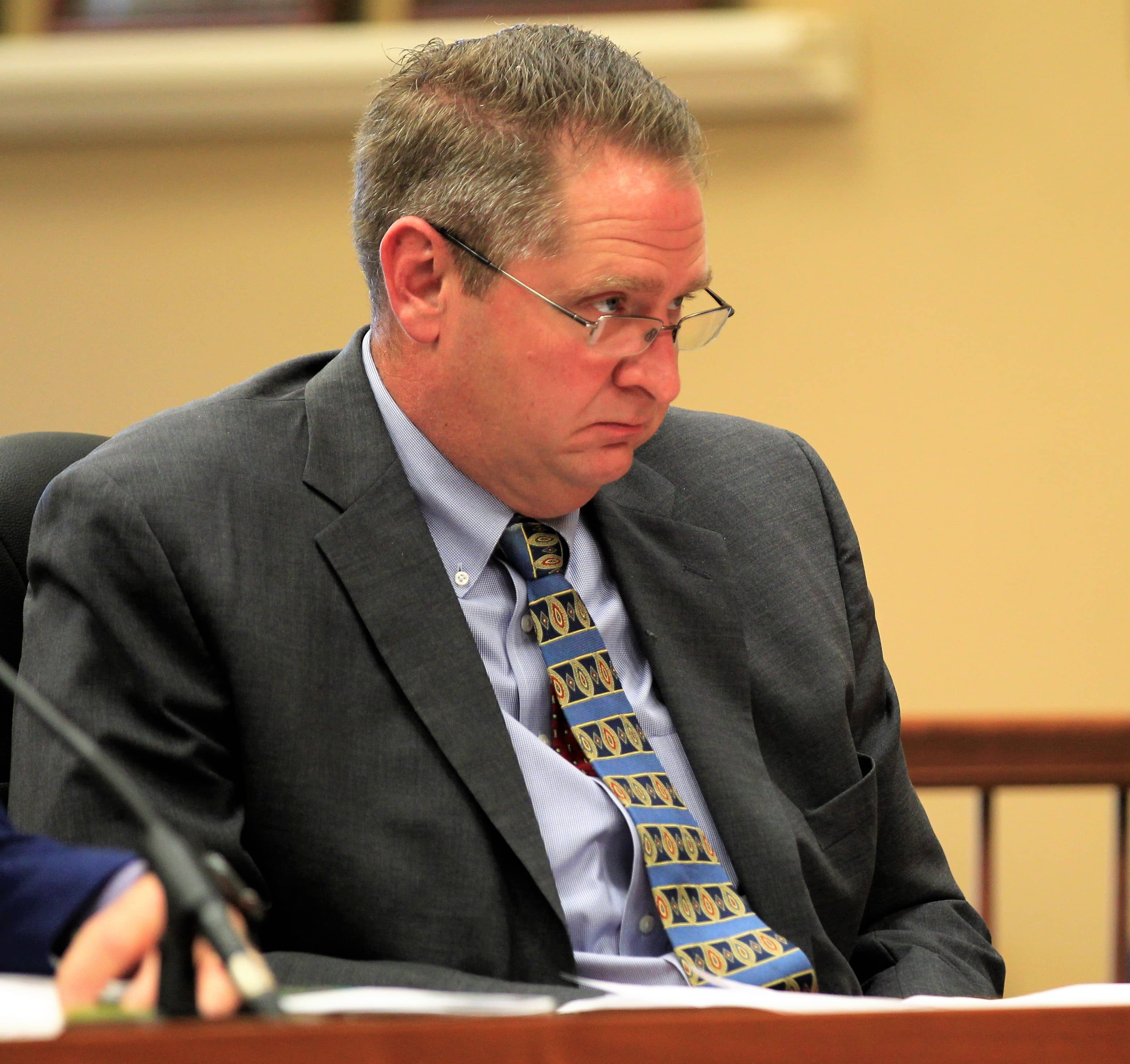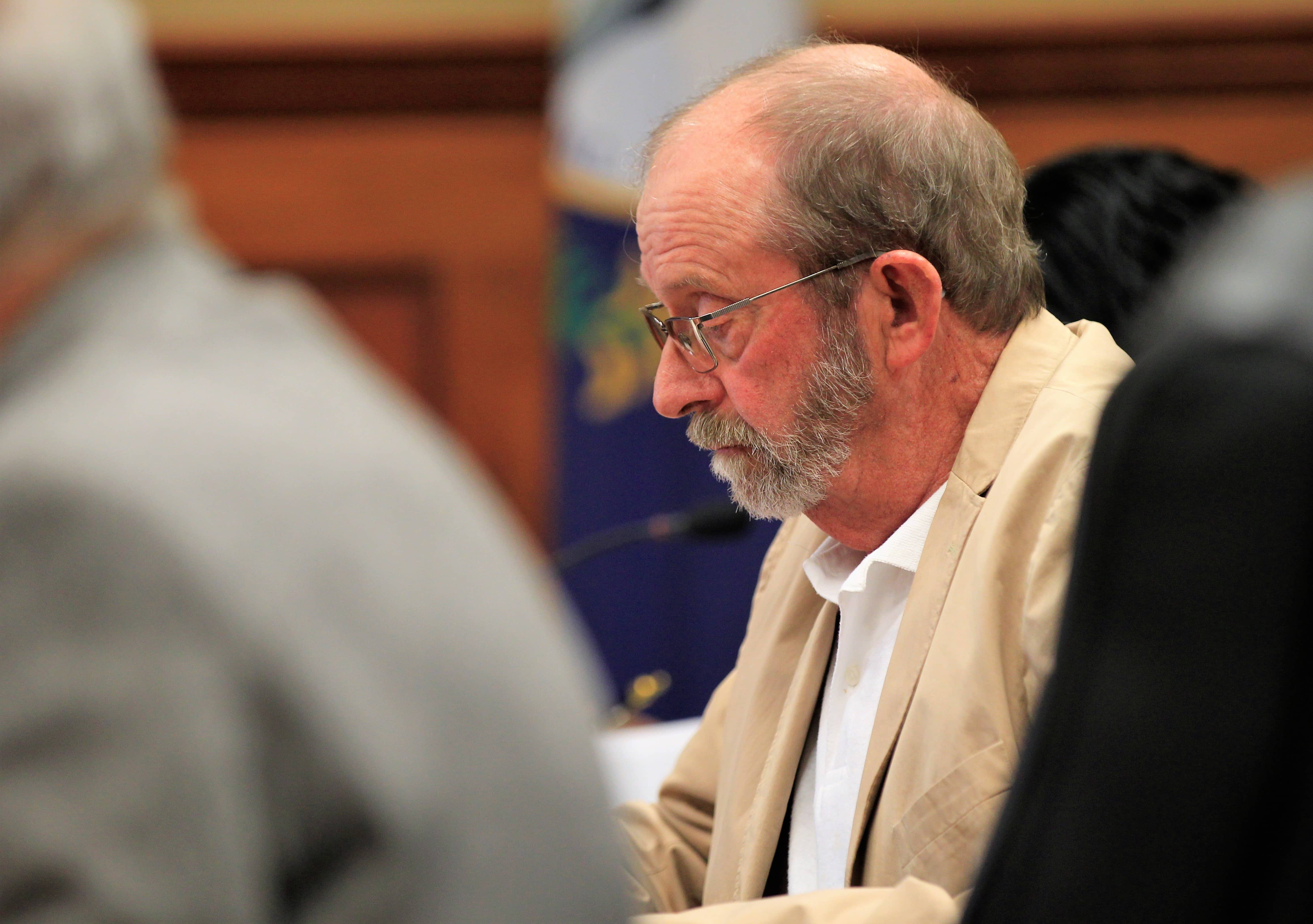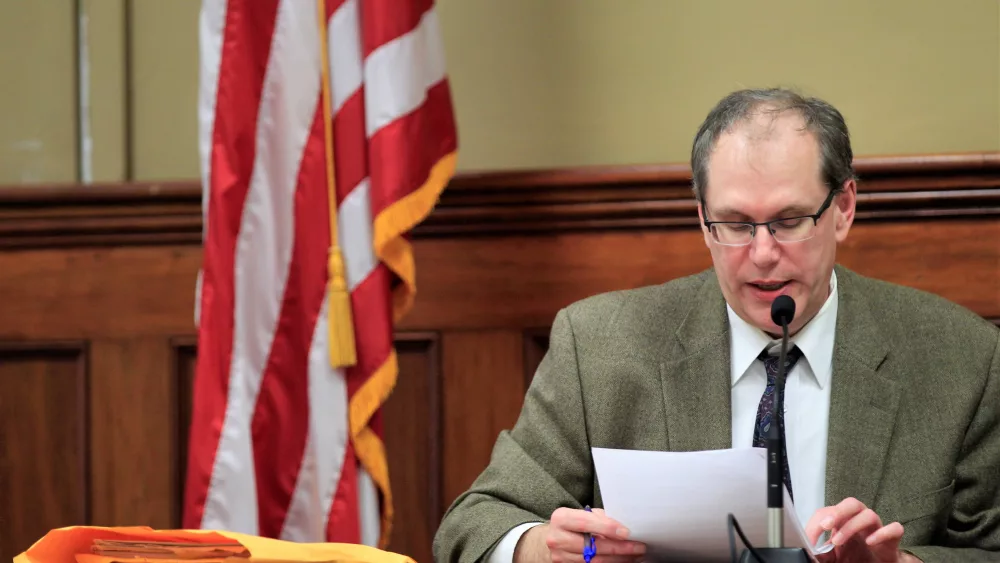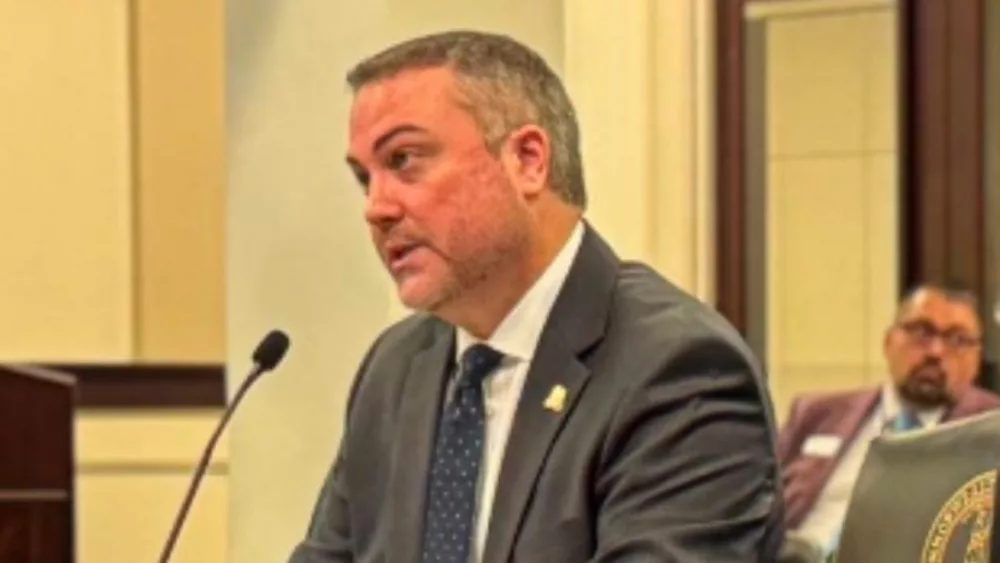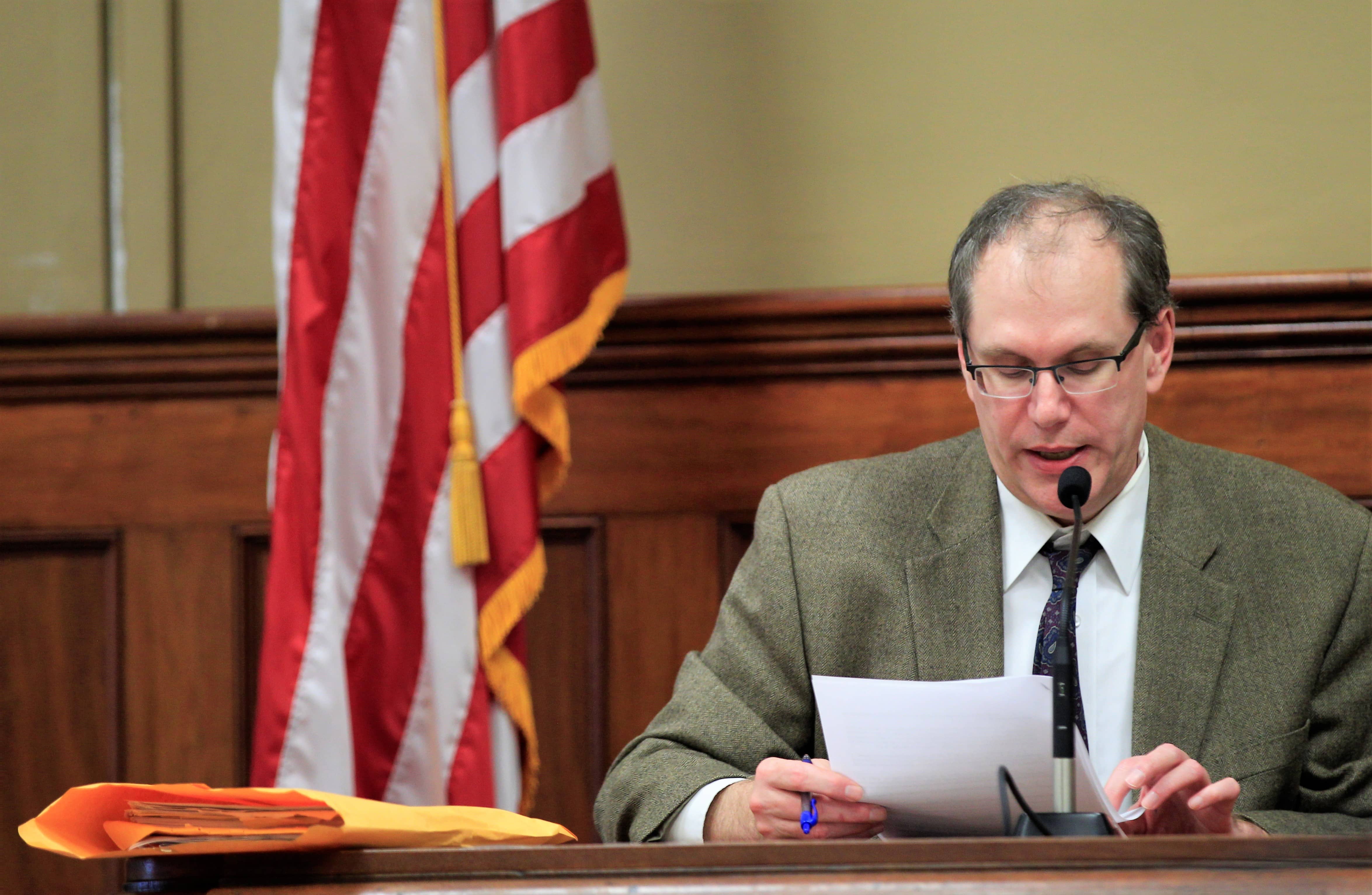
Following months of meetings and debate — including another impassioned hour Tuesday morning — Christian County Fiscal Court passed its long-awaited solar energy systems ordinance by a vote of 5-0, setting a 2,000-foot variance from the outer edge of any ground-level solar panel to all of the following in the county:
— boundary lines of all adjacent properties
— residences, buildings and structures existing at the time of construction
— schools
— churches
— hospitals
— nursing facilities
— right-of-ways for dedicated and maintained road and railways
— cemeteries
Magistrates Mark Wells and Terry Bowman abstained from the vote, while Mark Cansler served as judge-executive pro tem in Steve Tribble’s health-related absence.
Centered around the ongoing kerfuffle between Mitsubishi power venture Oriden and the Dogwood community of north Christian County, plans were originally placed on June 14 for a $220 million, 550-acre, 175-megawatt solar farm.
Since then, however, differing opinions on property rights have come to the forefront — and in the end, fiscal court made this call.
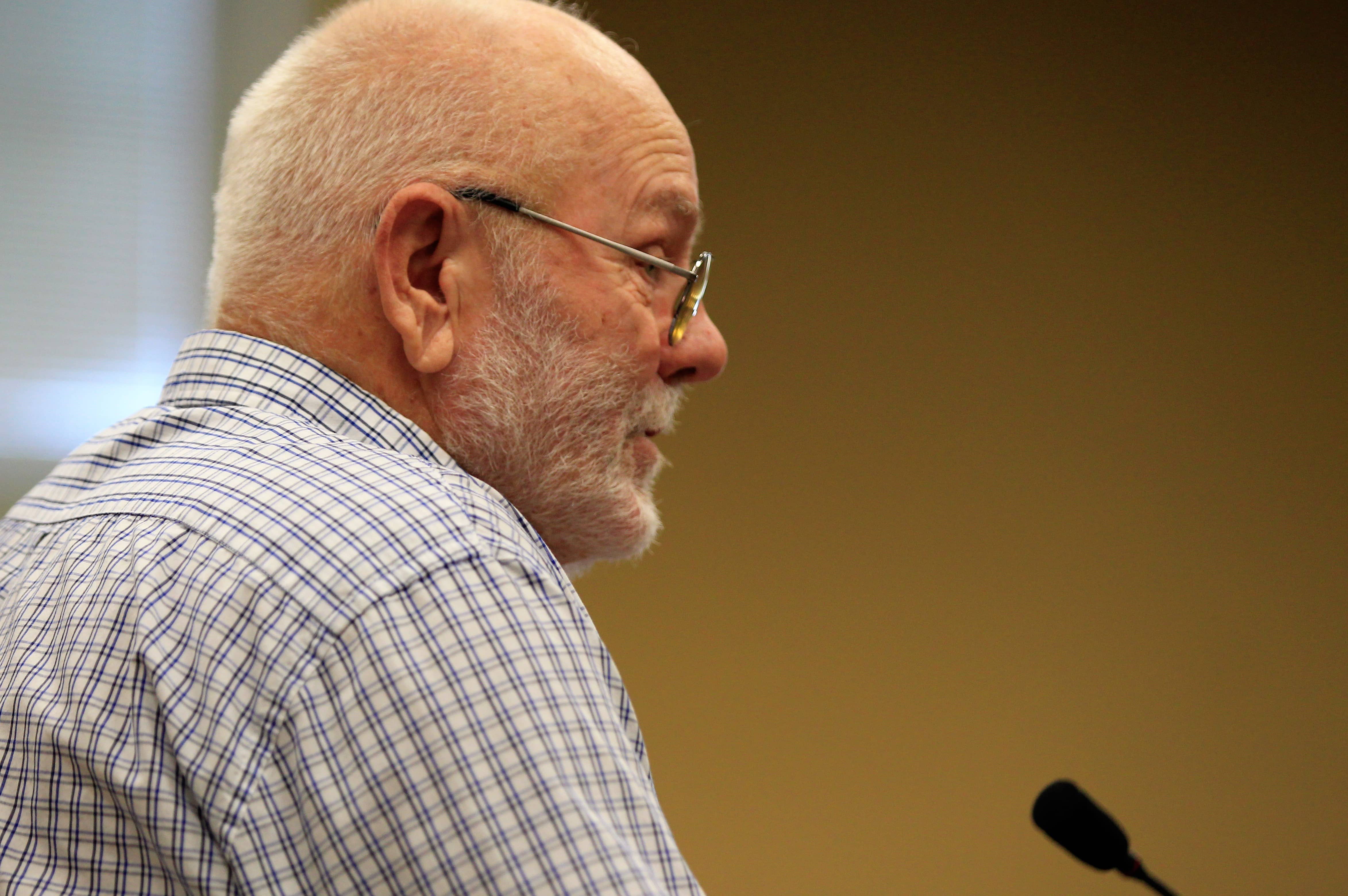
Pat Morris, of Pembroke Road, said Oriden’s project would account for less than 1% of Christian County’s landmass. He’d been approached for this solar project, and he wanted to be able to give up his 40-plus acres near Commerce Park to something more lucrative and promising for his future generations.
Heather Cook, of Goode Road, was nearly in tears — sharing with magistrates a colored map of Oriden’s plans, which draw right up to a property she and her family worked “extremely hard for.”
She applauded fiscal court’s efforts and the further transparency from Oriden representatives, who were present Tuesday morning, but noted that solar panels belonged elsewhere.
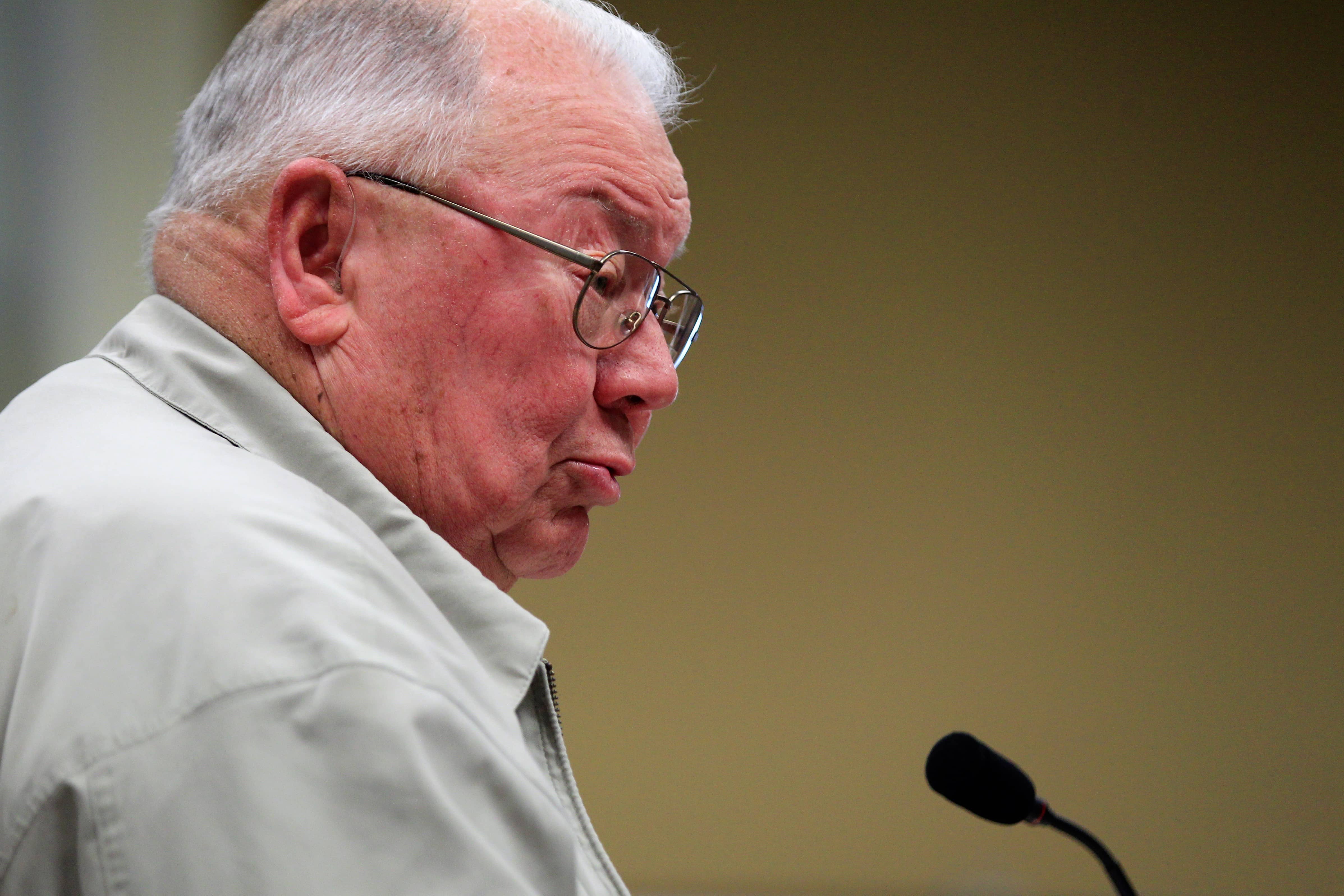
Wayne Hunt, longtime agrarian leader and H&R Agri-Power magnate, continued his spirited approach, in which he supports solar installations and admittedly employs them.
However, Hunt added they shouldn’t be soaking up Christian County’s farmland — which effectively generates considerable wealth for area farmers.
It is worth noting that property owners, through this ordinance, can request to have the variance reduced or waived by resolution through the fiscal court. Oriden officially went on the record seeking the 2,000-foot setback be lowered to 500 feet, in order to assist their construction needs while acquiescing to some property owner concerns.
Oriden response:

